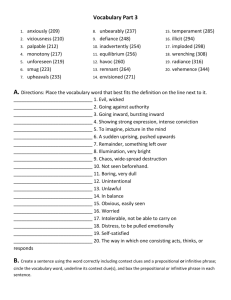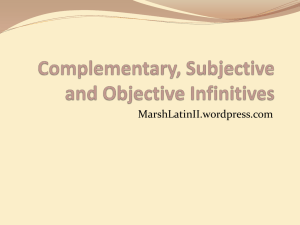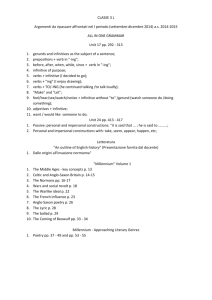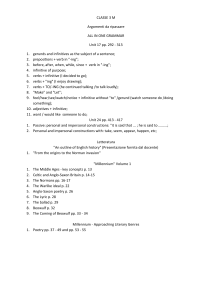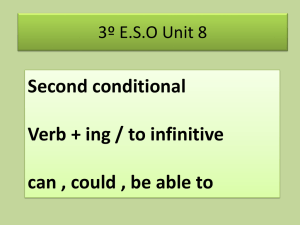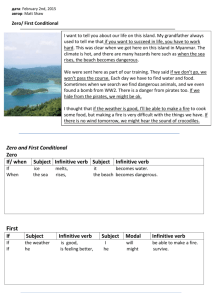Lesson 24 Content Worksheet
advertisement
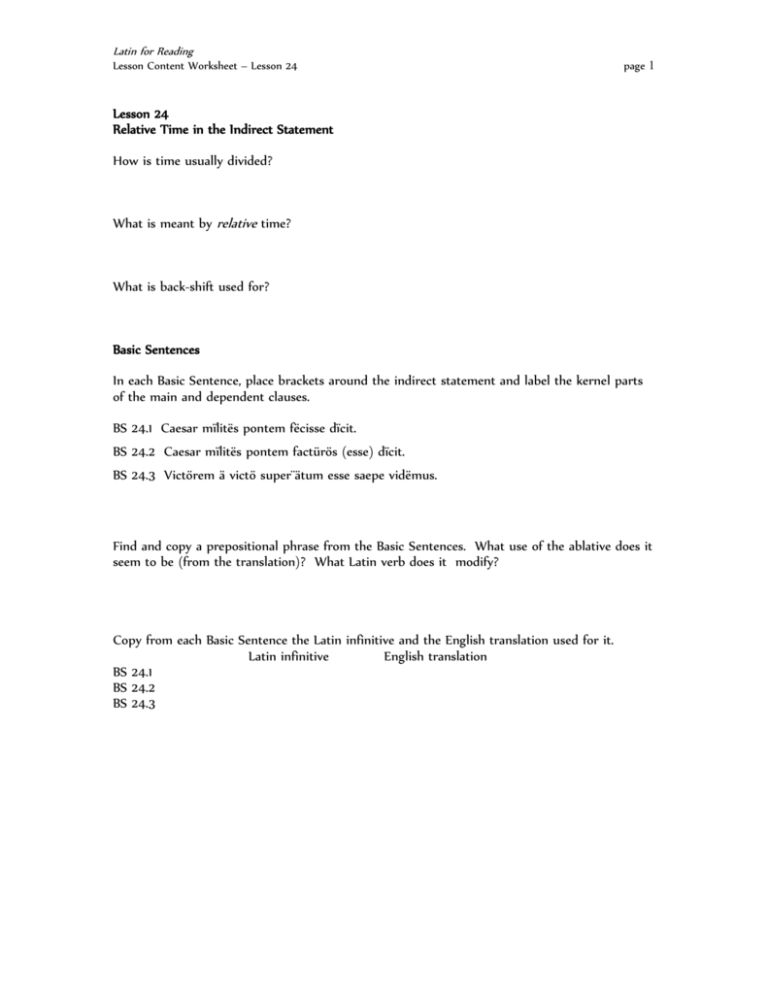
Latin for Reading Lesson Content Worksheet – Lesson 24 page 1 Lesson 24 Relative Time in the Indirect Statement How is time usually divided? What is meant by relative time? What is back-shift used for? Basic Sentences In each Basic Sentence, place brackets around the indirect statement and label the kernel parts of the main and dependent clauses. BS 24.1 Caesar mïlitës pontem fëcisse dïcit. BS 24.2 Caesar mïlitës pontem factürös (esse) dïcit. BS 24.3 Victörem ä victö super¨ätum esse saepe vidëmus. Find and copy a prepositional phrase from the Basic Sentences. What use of the ablative does it seem to be (from the translation)? What Latin verb does it modify? Copy from each Basic Sentence the Latin infinitive and the English translation used for it. Latin infinitive English translation BS 24.1 BS 24.2 BS 24.3 Latin for Reading page 2 Lesson Content Worksheet – Lesson 24 Relative Time in the Indirect Statement What infinitives have we seen built off of the imperfective stem? What stems are the infinitives in this lesson built off of? What are the infinitives introduced in this lesson? Which infinitives indicate a difference in relative time between the infinitive and the governing verb? Morphology: Latin Infinitives Give the active and passive endings for the imperfective infinitive for each conjugation: active 1st conjugation: voco, vocäre 2nd conjugation: jubeo, jubëre 3rd conjugation: lego, legere 4th conjugation: audio, audire What stem is the perfect active infinitive built from? What is the morpheme for the perfect active infinitive? passive Latin for Reading page 3 Lesson Content Worksheet – Lesson 24 What stem is the perfective passive infinitive built from? What type of form is the perfective passive infinitive? What verb form can be omitted in the perfective passive infinitive? What stem is the future active infinitive built off of? What is the morpheme for the future active infinitive? What type of form is the future active infinitive? What verb form is typically omitted in the perfective passive infinitive? Form the infinitives from the following verb: vocö, vocäre, vocävï, vocätus a um Imperfective Active ______________ Passive ______________ Perfective Future ___________ ____________ ______________ NA Find and copy the infinitives from the following Required Readings and identify for tense Latin infinitive Tense RR 24.2 ____________________ _______________________ RR 24.4 ____________________ _______________________ RR 24.7 ____________________ _______________________ RR 24.9 ____________________ _______________________ RR 24.10 ____________________ _______________________ ____________________ _______________________ Latin for Reading Lesson Content Worksheet – Lesson 24 page 4 Syntax What do the participle parts of the perfective passive and future active infinitives agree in case, number and gender with? Give two examples from the Basic Sentences, giving the infinitive and the word it agrees with. Relative Time What does the imperfective infinitive express in relation to the governing verb? What do the perfective infinitives express in relation to the governing verb? What are possible English translations for "time before"? What does the future active infinitive express in relation to the governing verb? Give examples from the Basic Sentences of: a perfective infinitive expressing "time before" a future active infinitive expressing "time after" Metaphrasing What does "back shift" mean? Read sentence a) and then complete sentence b) by using "back shift" in English a) Caesar says that he is the leader. b) Caesar SAID that he _____ the leader. Does back shift affect finite verbs? (i.e., do finite verbs change tense?) Does back shift affect non finite verbs?



